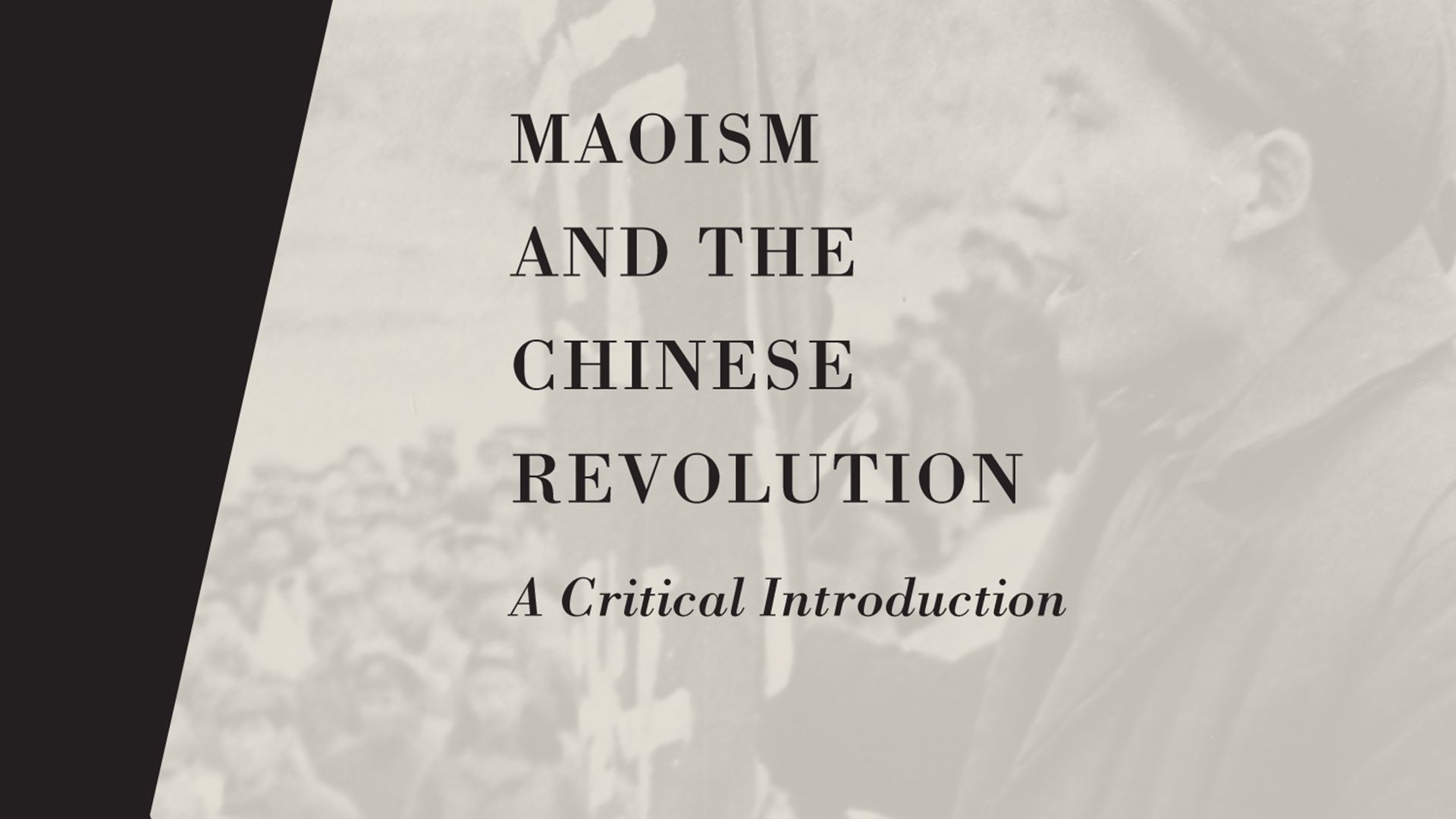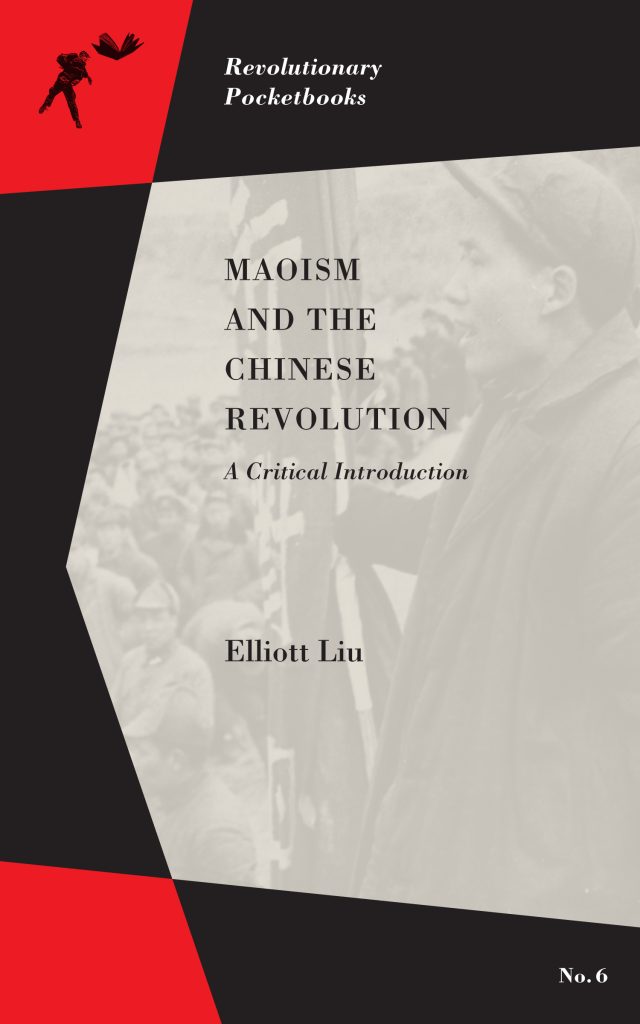by Alliance Against Displacement
May 31st, 2019
Series V: Maoism: Legacies, Uses, And Dangers
In late 2017, AAD decided to hold a reading series on Maoism. We used three points of reference in building the curriculum:
1. Textbook overviews: Chapters from Elliot Liu’s Maoism and the Chinese Revolution and Rebecca Karl’s Mao Zedong and China in the Twentieth Century World provide a historical framework for each of the classes, which roughly follow the timeline of the birth of Maoism as a political movement. These two textbooks are written by Marxists who are sympathetic with but not loyal to Maoism; they provide a critical framework to Maoist politics and practice. We should read these chapters critically but they should also be useful as touchstones.
2. Interpretations of Maoism (under various sub-titles): Articles from Maoists and non/anti-Maoist revolutionary groups and writers. These articles provide interpretations of the work and legacies of the Chinese revolution and also show the international impact of Maoism, including in North America.
3. Mao Zedong – essential selections: Mao in his own words. These articles by Mao (and in one case, by his defenders in the Red Guards) respond, anticipate, challenge, and substantiate the perspectives presented in the first two sections of each class.
Class 1: Origins and principles of Maoism
Textbook Overview
- Elliot Liu, “Introduction;” “Chapter 1: Prologue: the first Chinese revolution,” and “Chapter 2: The People’s War from the Countryside;” pages 1-43 in Maoism and the Chinese Revolution: A Critical Introduction (PM Press, 2016). Download the full pdf of Liu’s book here.
Definition & left critique
- Bernard D’Mello, “What is Maoism?” (Monthly Review, November 22, 2009)
- International Socialist Organization, “Tyrannies ruling in the name of socialism” (ISO’s Where We Stand series, 2013)
Supplementary readings
- Trotsky, “State, Thermidor, and Bonapartism” (February 1935)
- Communist Party of Canada (Marxist-Leninist), “Mao Tsetung Thought – the Marxism-Leninism of our era” (People’s Canada Daily News / On the Line, Vol 5, No. 215-220, September 8-13, 1975 – from the online collection of CPC-ML documents)
Mao’s words
- Mao Zedong, “A single spark can start a prairie fire” (January 5, 1930)
- Mao Zedong, “On Practice: On the relation between knowledge and practice, between knowing and doing.” (July 1937)
- Mao Zedong, “On Contradiction.” (August 1937)
Class 2: Working class revolution or bureaucratic power?
Textbook overview
- Elliot Liu, “Chapter 3: The CCP in state power,” and “Chapter 4: The cultural revolution,” pages 45-104 in Maoism and the Chinese Revolution: A Critical Introduction (PM Press, 2016). Download the full pdf of Liu’s book here.
Another view of the 1967 revolution
- Alain Badiou, “The Cultural Revolution: The last revolution?” (In The Communist Hypothesis, Verso 2010)
Women in the life of the Chinese revolution
- Zheng Wang, “Feminist contentions in socialist state formation,” Chapter 1 in Finding women in the state: A socialist-feminist revolution in the People’s Republic of China, 1949-1964 (2016).
Mao’s words
- Mao Zedong, “On State Capitalism” (July 9, 1953)
- Mao Zedong, “The mass line must be followed in suppressing counter-revolutionaries” (May 1951)
- Mao Zedong, “Twenty manifestations of Bureaucracy” (February 1970)
- Peking Review, “Red guards destroy the old and establish the new” (September 2, 1966)
Class 3: Impacts and applications of Mao Zedong Thought outside China
Textbook overview
- Rebecca Karl, “The Cultural Revolution: Denouement and Death of Mao, 1969-1976.” In Mao Zedong and China in the Twentieth Century World (Duke University Press, 2010).
Maoism in revolutionary struggles outside China
- Robin DG Kelly and Betsy Esch, “Black like Mao: Red China and Black Revolution” (Souls magazine, Fall 1999)
- Ray Bobb, Seabird Island Band, “Red Power and Socialist Study: 1967 – 1975”
- Josh Gershman, “Debates of the Philippine left” (Solidarity / Against The Current No.53, Nov-Dec 1994, US)
Supplementary readings
- Jung Linke, “’If we have rice we can have everything’: A critique of Khmer Rouge ideology and practice” (2011)
Mao’s words
- Mao Zedong, “US Imperialism is a paper tiger” (July 14, 1956)
- Mao Zedong, “What is Guerilla Warfare?” (from On Guerilla Warfare, 1937)
- Mao Zedong, “Be concerned with the well-being of the masses, pay attention to methods of work.” (January 27, 1934)


